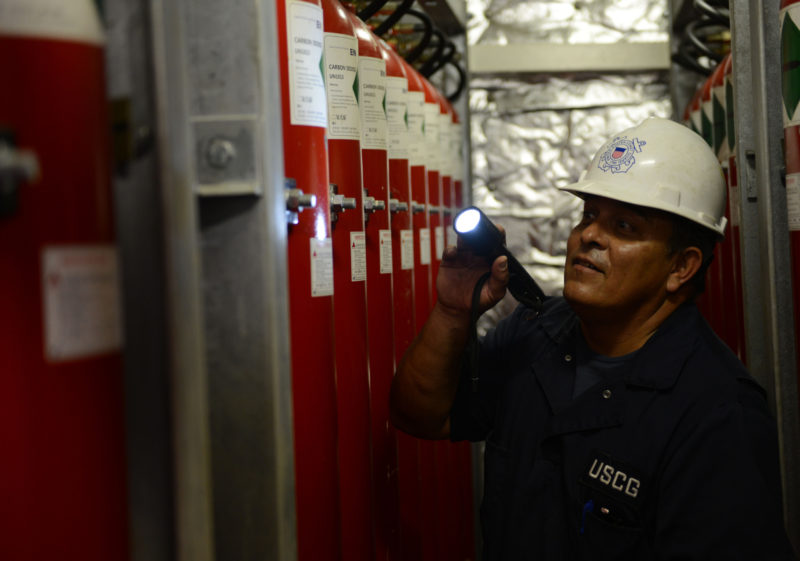Coast Guard officers examining liquefied gas carriers on the Gulf coast learned ethylene and other hydrocarbon vapors can trigger carbon monoxide alarms on gas detectors before they alarm for lower explosive limits.
Developed by the Coast Guard Sector Houston-Galveston and the Liquefied Gas Carrier National Center of Expertise (LGC NCOE) at Port Arthur, Texas, a May 30 safety alert warns that carbon monoxide (CO) alarms – usually alerting to deadly engine combustion gases in confined spaces – can also be an early warning of gas leaks, before they build to explosive levels.
Coast Guard officials said port state control officers on one carrier thought their detectors were sniffing CO from combustion. But the trigger was actually ethylene vapor from an 8” crack on a cargo vapor line.
A certified marine chemist who traced the problem told the Coast Guard officers their explosive level alarms likely did not sound because of high winds on deck. The molecular weight of ethylene is identical to that of CO, which would trigger that alarm, and the detector manufacturer “confirmed that gases such as methane, propane, ethylene and mercaptan” will actuate the CO sensors before the lower explosive level alarms.
A similar incident happened with another team of examiners during training on the top of a gas carrier’s cargo tank during loading with ethylene, when gas monitors showed 60 parts per million of CO with no apparent combustion source in sight.
The examiners came off the tank and talked to the crew, who brought out their gas detection equipment and confirmed hydrocarbon readings in the area. The port state control team left the vessel and issued an order to restrict cargo operations until a marine chemist could identify the hydrocarbon source.
The chemist could not duplicate the earlier readings, but the crew reported they had tightened a maintenance line flange on a cargo vapor line that they suspected could have been the vapor source. Again, strong wind across the deck probably dispersed vapors before triggering the low explosive level alarms, according to Coast Guard officials.
“As a result of these events the Coast Guard strongly reminds all surveyors, marine inspectors, port state control examiners, and any other persons utilizing portable gas monitors and detectors while working onboard on Liquefied Gas Carriers to remain acutely aware that the ethylene gas vapors can exhibit cross-sensitivity. This issue is not limited to the monitors that the Coast Guard uses but also those made by other manufacturers,” the safety alert stressed.
“Everyone using a monitor must be aware that if the CO alarm goes off it may be an indication of dangerous gases or chemical vapors and not the presence of CO. When the alarm sounds users must take corrective action to minimize exposure risks.”




